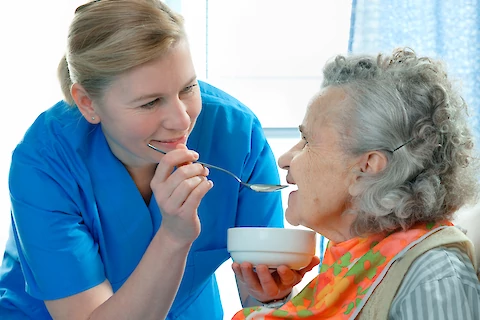
Caring for our senior loved ones goes beyond just making them comfortable. It's about ensuring they are healthy, too. A vital part of their health revolves around a factor that might not always be on our radar: nutrition. It's more significant than we often realize. Unfortunately, malnutrition among seniors isn't uncommon. We want to equip you with the knowledge and tools to identify early warning signs of senior malnutrition. We want you to feel empowered, capable of effectively monitoring your senior's eating habits and addressing any issues before they escalate. When it comes to the health of our loved ones, every bit of information matters.
What Is Malnutrition?
Senior malnutrition often goes unnoticed until it becomes a significant health concern. It's characterized by insufficient nutrients for the body to function correctly. Seniors are particularly at risk due to various physiological, psychological, and social factors.
What Are the Signs of Senior Malnutrition?
Identifying malnutrition early on is crucial. Watch for physical signs such as sudden weight loss, fatigue, or frailty. Behavioral signs may include loss of appetite or difficulty in meal preparation. Take note if your loved one seems uninterested in food or struggles with cooking or feeding themselves.
What Causes Malnutrition?
Loss of appetite in seniors often goes hand in hand with malnutrition. It could be caused by numerous factors, from medication side effects to emotional issues like depression. Furthermore, difficulties with food preparation can arise from physical challenges, such as arthritis making it hard to hold utensils or cognitive impairments affecting the ability to follow recipes.
How Can I Prevent Malnutrition in My Senior Loved One?
Monitoring your senior's eating habits can provide valuable insights into their nutritional health. Pay attention to the quantity of food consumed and its nutritional value. Asking casual, open-ended questions about their meals can give helpful information without making them feel interrogated.
Preventing malnutrition involves ensuring a diet rich in vital nutrients. Planning meals can be an effective way to incorporate a variety of fruits, vegetables, proteins, and grains into their diet. Additionally, try to make mealtime enjoyable and social as it can stimulate their appetite. Small, regular meals might be less overwhelming than three large meals daily.
Sometimes, despite your best efforts, expert guidance may be necessary. If you notice persistent warning signs even after addressing them, don't hesitate to seek professional help. A healthcare provider can offer individualized strategies, including dietary changes, supplements, or addressing underlying health conditions contributing to malnutrition.
Senior Helpers Sunbury Can Help Support Good Senior Nutrition at Home
Ensuring good nutrition is a crucial part of your role as a caregiver. By staying vigilant for signs of malnutrition, encouraging a healthy diet, and seeking help when needed, you can significantly improve the quality of life for your senior loved one.
For caregivers in Selinsgrove, Milton, and Lewisburg, remember you are not alone in this journey. Senior Helpers Sunbury is here to provide professional assistance whenever you need it, whether helping with meal preparation, nutritional planning, or other caregiving support. Contact Senior Helpers Sunbury today.